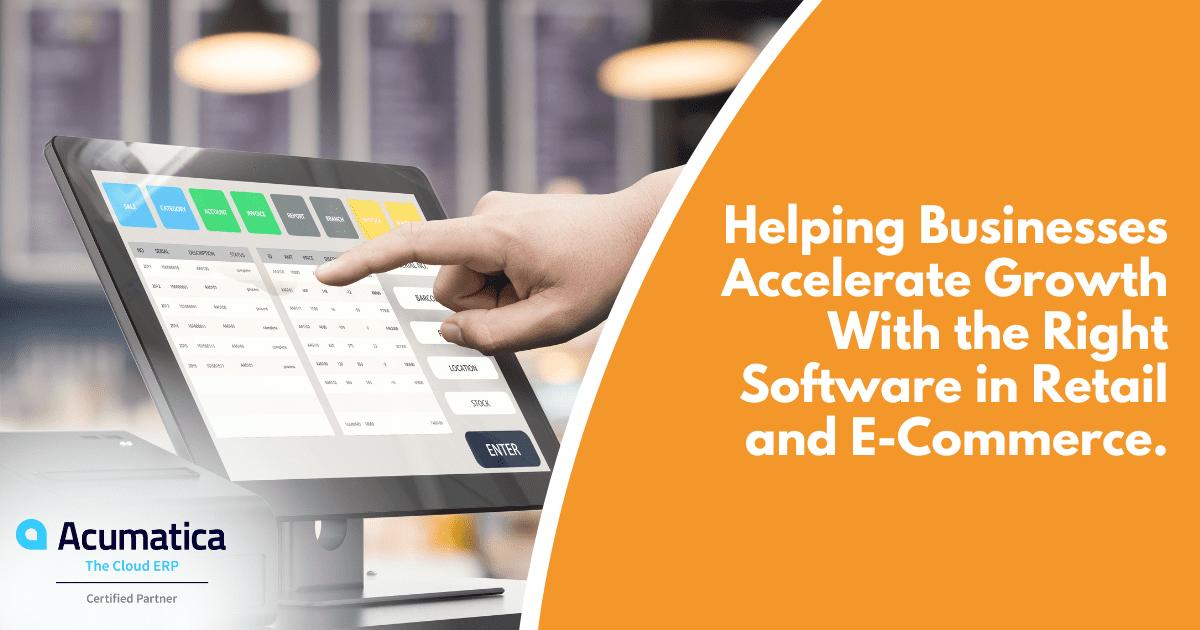Financial Control in ECommerce & Retail
October 27, 2022

October 27, 2022
In the fiercely competitive e-commerce market, effective financial control or management is a key driver for success. It’s important to note that comprehensive financial management exceeds narrow definitions of manual processes.
Your e-commerce brand needs to adopt sophisticated tools and networks to deliver high-end results. Let’s examine different approaches to financial control for e-commerce and retail businesses relevant in the present world.
5 Steps For Efficient Financial Control For Ecommerce and Retail
1. Strengthen Internal Control
In addition to the government policies that regulate the finance sector, retail and e-commerce should voluntarily improve financial risk management with intent. Below are tips to enhance your internal financial control.
- Implement Cost Management
Cost management focuses on reasonable spending to save costs. It begins with setting cost management goals and creating awareness within the organization. Encourage your staff to use the least possible resources to complete their tasks.
Also, keep in mind that accounting standards and financial practices constantly evolve with time. Hence, your financial staff needs to learn and keep up with the current trends of the fast-paced financial environment.
- Improve the Quality of Financial Staff
Retail e-commerce is growing fast. You run most fundamental accounting operations with robust software solutions instead of manual tasks or spreadsheets.
More so, your recruitment requirements must spell out the appropriate attributes and required skills desired by your financial staff.
- Seek Expert Help
A competent senior financial manager can help you better manage your e-commerce and retail business’s financial life. This includes carrying out budget management, capital operation, and tax planning. Combined with the above internal finance control measures, experts’ advice can accelerate the business’s financial health.
2. Use Automated Financial Management System
The backbone of e-commerce is the internet. And with the rapid advancements in internet operations, online businesses have many opportunities to improve their financial management.
For instance, you can easily automate your accounting operations using cloud-based retail ERP software to improve efficiency. From basic routine processes such as accounting data conversions to major operations such as supply chain, inventory management, CRM, and support along with other functions, could be efficiently automated and managed on a cloud ERP to help save time and minimize errors.
With robust retail commerce management omnichannel software like Acumatica, you can create an efficient omnichannel experience by integrating all your sales channels into a unified platform. The all-in-one solution allows you to synchronize your web store operations for more effective management via a single source of truth.
3. Have a Dedicated Business Account
Separating your corporate finance from personal finance is one critical facet of effective financial management. Opening a separate account for corporate cash flows is a crucial requirement for operating a business in the US.
Basically, this strategy sets you on the path to successful financial control, especially during tax filing. During tax filing, you’ll be able to track the business income and expenditures accurately to calculate your business tax.
On the other hand, you can protect your personal assets. If you mix up your personal finance and corporate flows, you risk losing your personal funds or miscalculating your business obligations including taxes owed.
4. Improve Your Marketing Process
Robust marketing processes and strategies are at the heart of a growing business. E-commerce and retail can increase customer satisfaction and strengthen service levels to achieve increased sales as well as economies of scale. But how?
Omnichannel selling is one proven strategy to improve your eCommerce selling process in today’s fast-paced business environment. Contrary to multichannel selling, which uses multiple marketing channels that aren’t connected to create a seamless buyer journey, omnichannel marketing is an all-encompassing marketing strategy.
Typically, omnichannel marketing aims to improve customer satisfaction by integrating and synchronizing the marketing experience on multiple communication channels. In other words, customers can reach you via every marketing channel. Omnichannel software integrates these different marketing channels for easy data sharing.
As a retail ERP platform, Acumatica eCommerce offers efficient CRM to promote customer service. It’s a perfect solution for business processes crucial to retail operations, such as marketing, giving you an actual omnichannel experience.
Another marketing strategy that can boost your e-commerce business is affiliate marketing which helps you increase traffic, brand value, and sales.
5. Consider External Financing
From financing routine business operations to investing in new products and services, cash flow is critical to the success of every business. And sometimes, external financing such as short-term or capital expense loans can come in handy when you need operational or expansion.
Bottom Line
As your online business grows and the ever-expanding world of e-commerce becomes more competitive, you need to strengthen your business’s financial control. From basic online accounting to full ERP activities, a retail ERP is formulated to support the growth journey of small and medium-sized enterprises. And with the all-in-one solution of Acumatica, your business management can be seamless.
Exclusive Partnership with Acumatica
SaaS Direct is an exclusive Acumatica-certified partner and works with clients seeking modern solutions to legacy problems. Our extensive consulting experience with Retail and D2C businesses gives us an edge in quickly grasping operational, functional and efficiency barriers within an enterprise. Talk to us regarding your data conversion needs or software advice for a session of expert advice.
